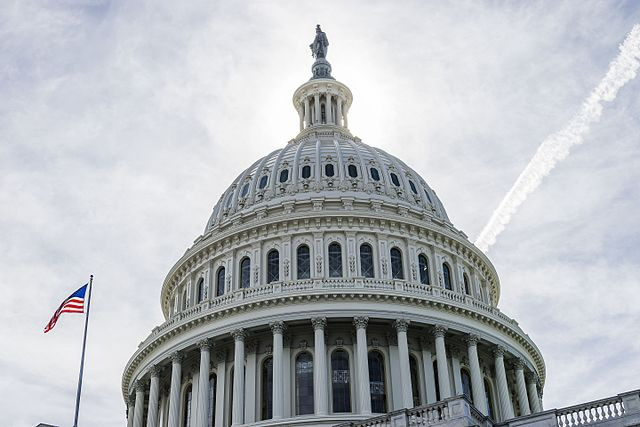In a move to stave off a politically disastrous government shutdown just weeks before the 2024 presidential election, Congress reached a deal on Sunday to extend government funding through December 20. The short-term solution, known as a continuing resolution (CR), ensures that crucial government services will continue to function, averting a crisis that was set to begin at midnight on September 30.
Senate Majority Leader Chuck Schumer (D-NY) expressed cautious optimism, saying, "If both sides continue to work in good faith, I am hopeful that we can wrap up work on the CR this week, well before the September 30 deadline." The deal, which now heads for a vote in both chambers, is expected to pass and be signed by President Joe Biden.
While the agreement temporarily avoids a shutdown, it leaves unresolved the broader budget negotiations that will need to be tackled after the election. Congress will soon face another critical deadline in December, setting the stage for yet another political battle during the closing weeks of 2024, when a new president will be preparing to take office.
House Speaker Mike Johnson (R-LA) played a key role in brokering the agreement. In a letter to his colleagues, Johnson warned that allowing the government to shut down just weeks before the election would be "an act of political malpractice." He also acknowledged the delicate political landscape, stating, "The future of our exceptional nation directly depends upon our success, and I am confident that together we will prevail."
The agreement comes after weeks of intense negotiations between the GOP-controlled House and the Democratic-led Senate. Johnson's initial attempt to pass a six-month funding extension, which included a controversial provision requiring proof of citizenship to vote in federal elections, was blocked by Senate Democrats. The current deal, notably, does not include that provision, which Democrats had argued would make voting harder for many Americans and was unlikely to pass the Senate.
Former President Donald Trump had pressured Republicans to let the government shut down if the voting bill wasn't passed, claiming non-citizen voting could affect the election's outcome. However, this claim has been widely debunked, with experts noting that instances of non-citizen voting are extremely rare and illegal under U.S. law. Senate Minority Leader Mitch McConnell (R-KY) also voiced opposition to a shutdown, stating, "It would be politically beyond stupid for us to do that right before the election because certainly we would get the blame."
Schumer criticized the earlier GOP efforts, saying, "While I am pleased bipartisan negotiations quickly led to a government funding agreement free of cuts and poison pills, this same agreement could have been done two weeks ago. Instead, Speaker Johnson chose to follow the MAGA way and wasted precious time."
The deal does, however, include $231 million in additional funding for the U.S. Secret Service. This boost in funding comes after a series of recent threats against former President Trump, including a July assassination attempt and an incident earlier this month in which a man was discovered near a Florida golf course where Trump was playing. The additional funding will focus on providing enhanced protection for Trump and other candidates during the 2024 campaign.
With the temporary resolution in place, Americans can breathe a sigh of relief knowing that critical services, such as Social Security, Medicare, and Medicaid, will continue uninterrupted. Essential government functions, including military operations and law enforcement, will remain intact, and federal employees classified as "essential" will continue to work, although many will face delayed pay if a shutdown occurs later. Non-essential workers, in contrast, would be furloughed and paid once the government reopens.
However, some services could still experience disruptions. National parks and monuments may close to the public, and services such as passport processing and visa assistance could face delays. Childcare programs, like Head Start, could be impacted if funding lapses. Additionally, while airport security and air traffic controllers will continue to work, there is a risk of delays due to absenteeism.
Looking ahead to December, lawmakers are already bracing for the next budget fight. The current resolution only buys Congress time, but does not solve the deep-rooted fiscal disagreements that have plagued recent negotiations. The two parties will have to return to the table in the coming months to hammer out a longer-term funding deal, which is expected to spark further debate and contention as the end of the year approaches.
Schumer acknowledged the ongoing challenges, calling for continued bipartisan cooperation in both chambers. "The key to finishing our work this week will be bipartisan cooperation, in both chambers," he said, urging both parties to work together as December's deadline looms. With another potential shutdown crisis just around the corner, the temporary reprieve serves as only a partial resolution to a much larger and increasingly contentious political battle.






